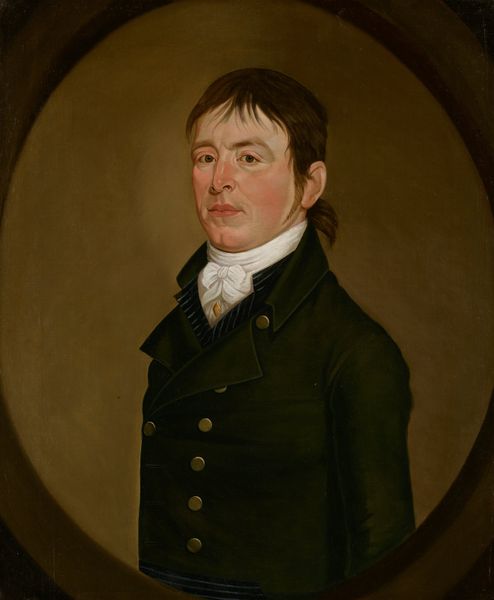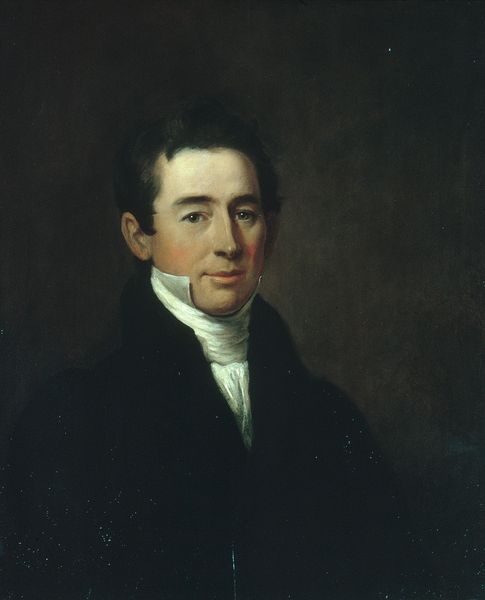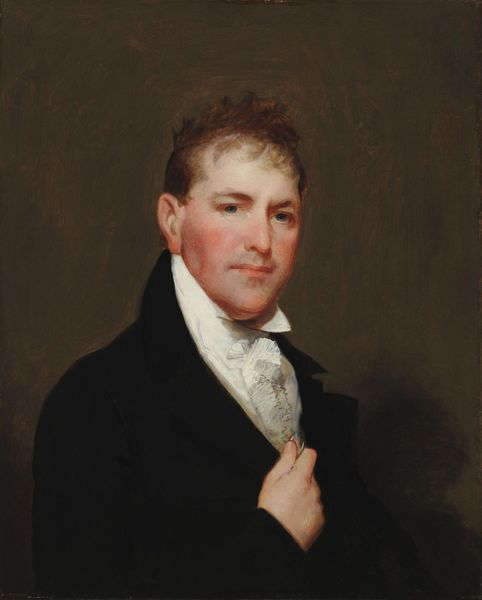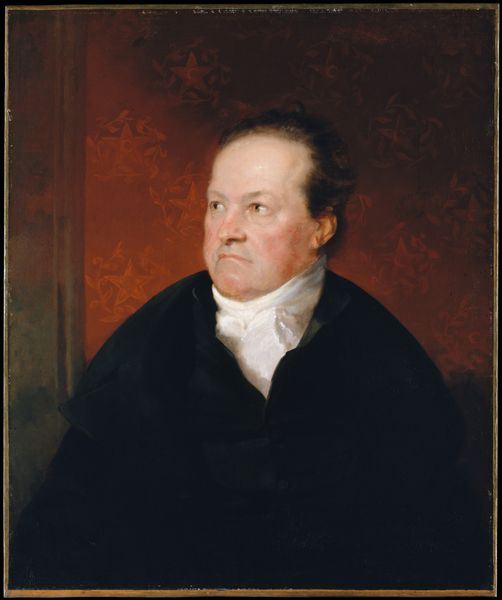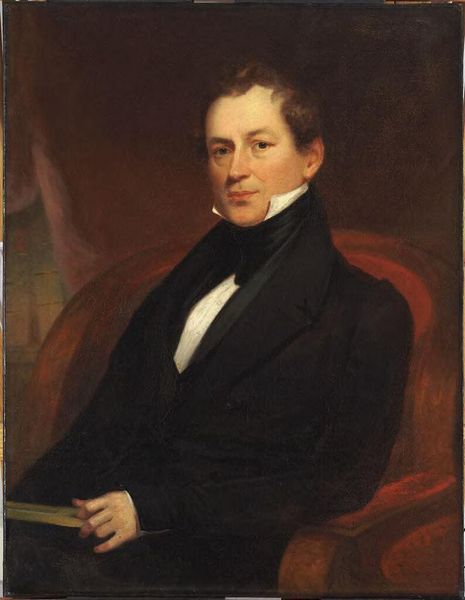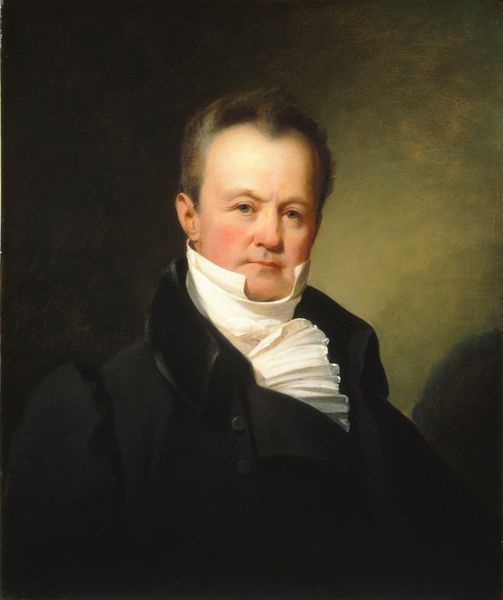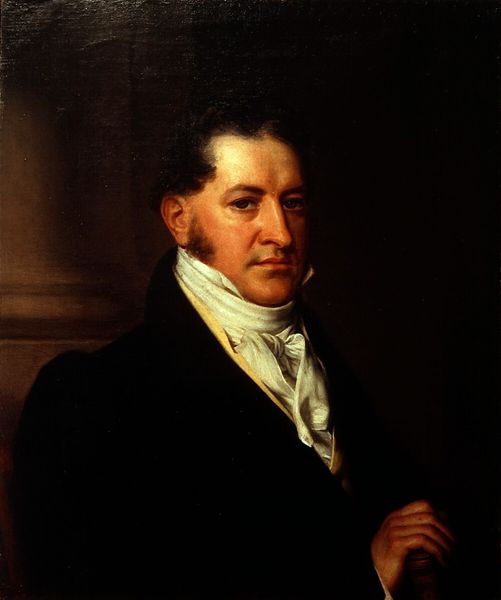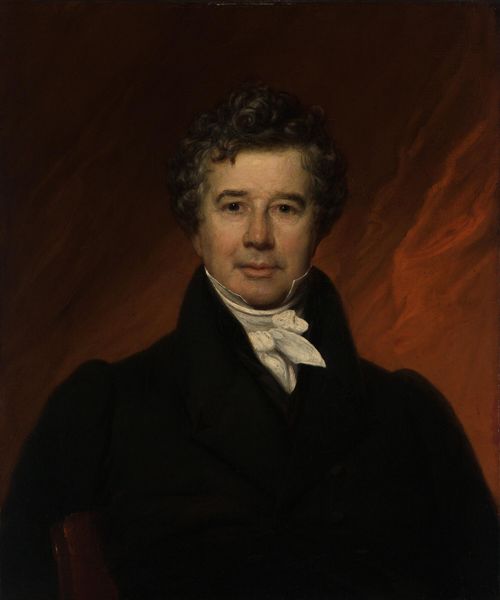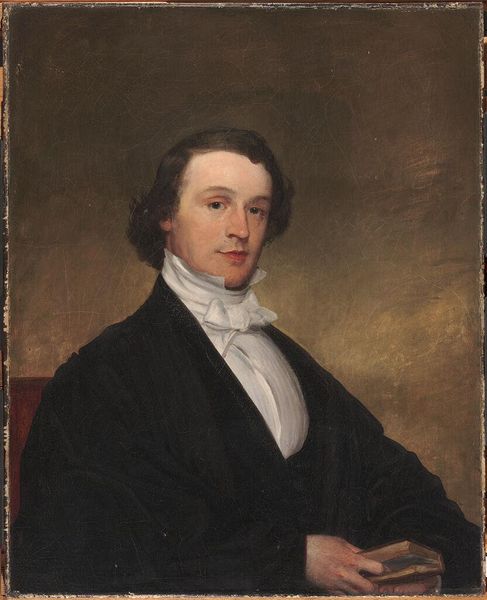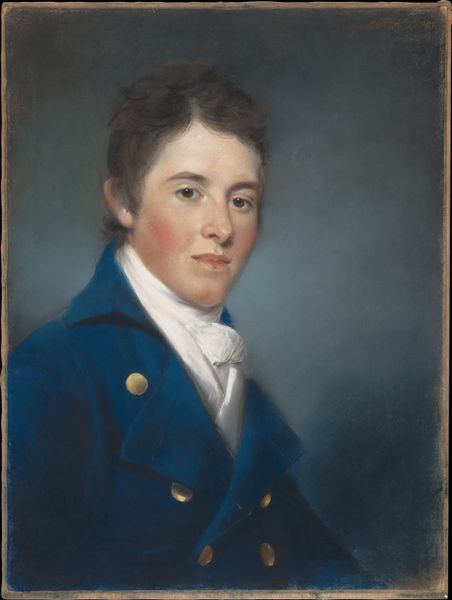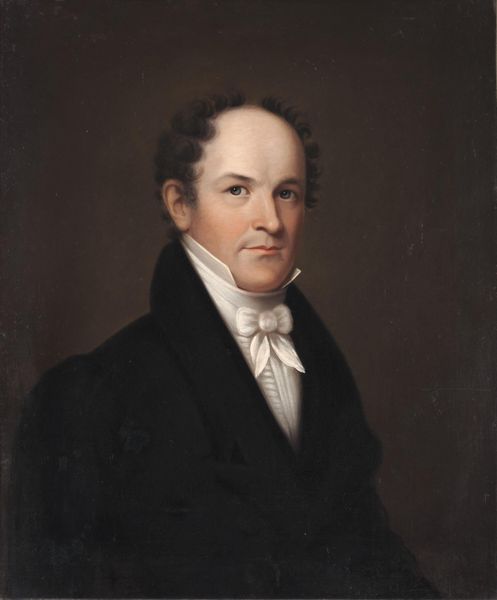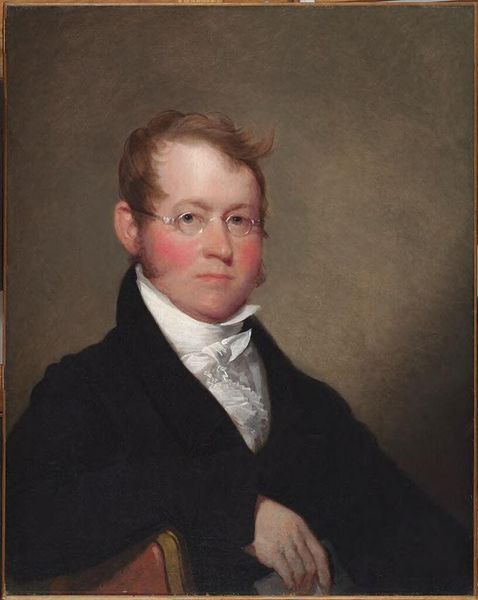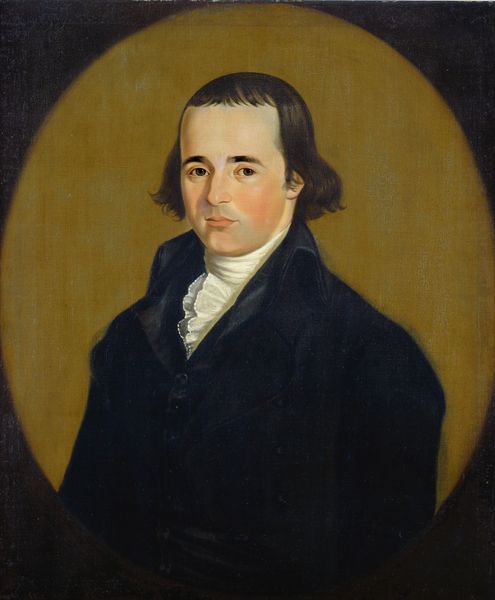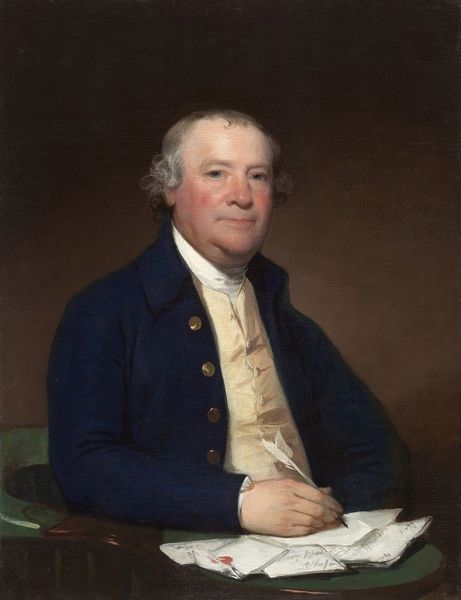
painting
#
portrait
#
portrait image
#
portrait
#
painting
#
portrait reference
#
portrait head and shoulder
#
romanticism
#
portrait drawing
#
facial portrait
#
academic-art
#
portrait art
#
fine art portrait
#
celebrity portrait
#
digital portrait
Copyright: Public domain
This is a portrait made with oil on canvas by Samuel Morse, the famous inventor, in the first half of the 19th century. But before he gave us the telegraph, Morse was a trained and working artist in the American Northeast. Consider this portrait in its historical context. Patronage was essential for artists, and portraiture was a primary source of income. But the act of painting a portrait involved social codes and power dynamics. Who commissioned the work, and why? What did they want to convey about themselves? The sitter's formal attire, and the artist's attention to detail signals a man of means and social standing. But Morse was also a founder of the National Academy of Design, an organization that sought to professionalize artistic training in the United States, challenging the more informal apprenticeship model. Art history, then, is not just about aesthetics. It's about understanding the economic, social, and institutional structures that shape artistic production. To delve deeper, we might research Morse's career, analyze exhibition records, or explore the networks of patronage in the early American art world.
Comments
No comments
Be the first to comment and join the conversation on the ultimate creative platform.
